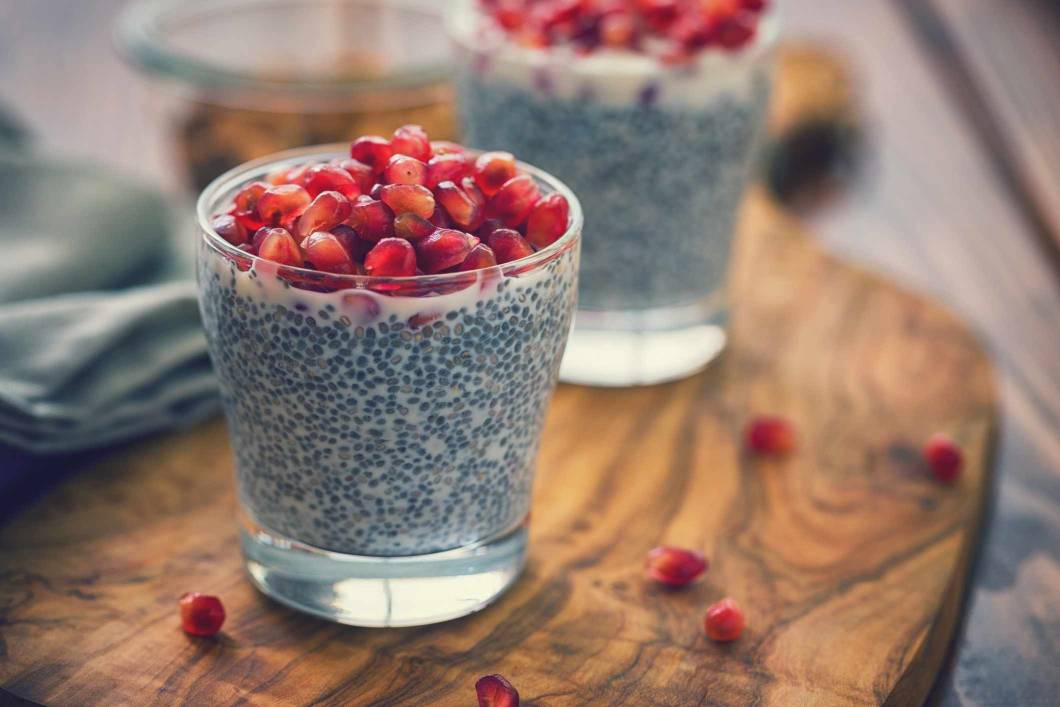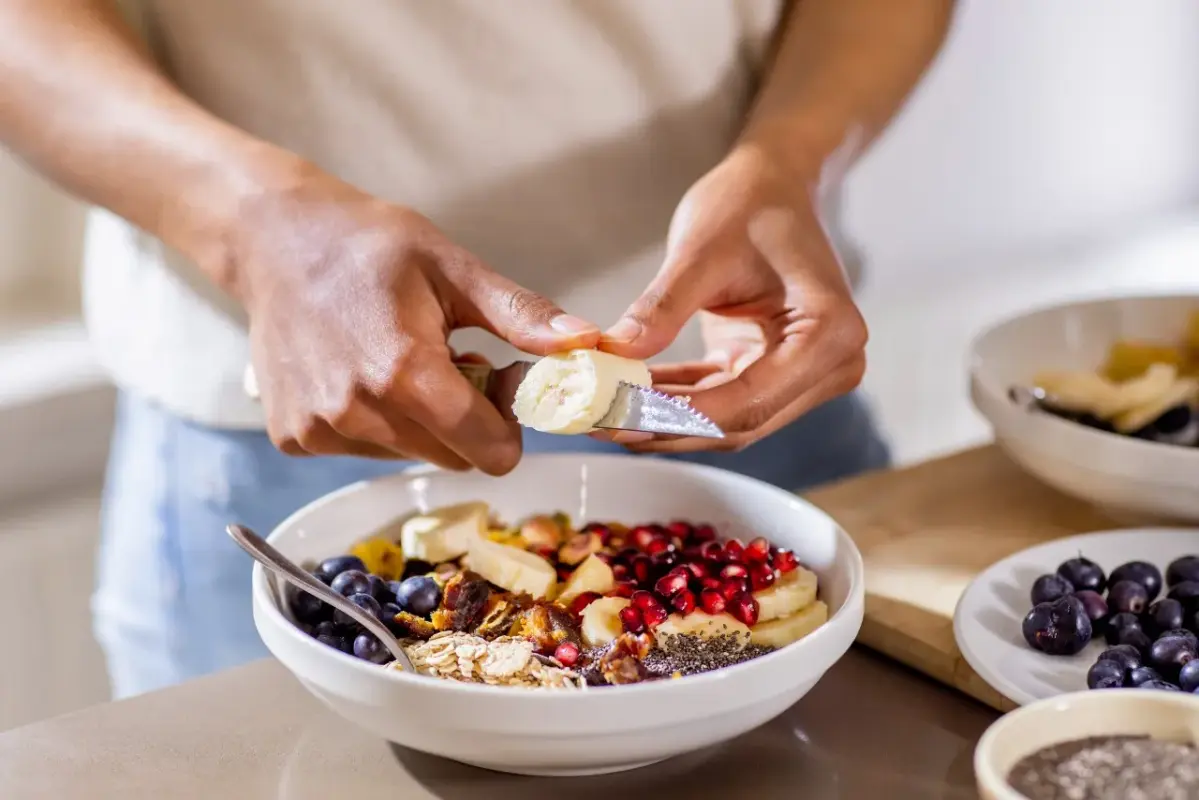Miguel Toribio-Metas, a clinical neuroscientist, nutritionist and intestine microbiom scientist Dr. Miguel Toribio-Metess says, "Asparagus allows raw for complete intake of its prebiotic fiber, which is particularly effective in increasing the levels of bacteria beneficial in the intestine." Cooking asparagus can break some of its fibrous materials; however, lightly steam can preserve some of its prebiotics from steam, while making it easier to digest for people with Foods that heal gut inflammation.
Read Also: The Ultimate High-fiber Foods Chart For Constipation Naturally
Discover Superfoods That Transform Your Gut Health
Avocado:
Another source of intestine -friendly fiber is avocado, which we know that Illinoisan thanks to intestine health thanks to the study of 2020. Researchers found that people who eat avocados daily have a more diverse intestine population than those who are not good news if your passion for Guakamol does not know any limit. If you are not a fan of fatty fruit, try it in a smoothie; Adding fresh berries changes taste and also adds more intestinal-healthy nutrients.
Bananas:
Can nothing bananas do? These sweet and nutritious fruits have long been observed for their slow-relief energy and great potassium content-and they are also good for your digestion. "Green bananas and plants contain resistant starch, which acts similar to fiber, opposes digestion and becomes food for our microbial friends," Toribio-Matis explains.
Beans:
Whether it is canalinee, kidney, borloti or Harikot, we can all get more legumes in our diet. Toribio-Matis says, "Legums are packed with fiber and resistant starch, which are major prebiotics." "Cooking them increases the bioavailability of their prebiotic components, breaks some fibers and make them more accessible to intestinal bacteria." In addition to eating them in stews or toast, try to cool your legumes in salads - thus, their resistant starch content will be even greater.
Black olives:
Do you know that the salted Greek black olives who pop up in pizza and salad are fermented? They are also incredibly high in polyphenols - plant microscopic nutrients, which, according to many research studies, interact with our intestine microbes to reduce our risk of chronic disease. In fact, all naturally processed olives (and good quality olive oil) are a great source of polyphenols, which is a contribution factor for the overall benefits of a Mediterranean diet.
Broccoli:
Fantastic stimd, added to the stere-fries and roasted in olive oil, broccoli is a delicious, nutrient-rich vegi in your weekly food rotation. Green, tree -shaped components are high in fiber and collagen, both major components that are known to help digestion. Broccoli is packed with vitamin C and K as well as phytonutrients, a range of compounds that show research that shows the anti-cancer effects.
Cheese:
When you consider how many cheese of the world's legacy are made of cultured raw milk, it is not surprising that they are packed with diverse microbyota, which are ideal for expanding our own intestine population. According to French research, raw milk cheese can dramatically increase the number of intestinal bacteria following an antibiotic treatment. Hard, old cheese, such as cakes, groise and permes, can be particularly powerful - and artisans or farmhouse cheese are also more likely to be more than using wild cultures.
Read Also: The 10 Most Popular Foods in the USA
Chia seeds:

These small black seeds may look inferior, but they are actually packed with antioxidants, minerals and omega -3 fatty acids. Chia seeds are also very high in fiber, which means they help your intestine health and reduce the risk of many chronic diseases. They can be sprayed over curd, salad and grain because they are-or when soaked in water, chia seeds become perfect for adding nutrients to desserts and pudding.
Garlic:
This powerhouse of taste is great for your microbiom. "Raw garlic is a rich source of inulin and fructuligosaccharides (FOS), powerful prebiotics that stimulate the development of beneficial intestine bacteria, called Toribio-Matis. "Cooking garlic can reduce its prebiotic value, as heat can degrade these sensitive compounds, but adding it to the end of the cooking process will help maximize the amount of alicin - a compound with remarkable health benefits - reduce the erosion of prebiotics."
Herbal teas:
Enjoy a physical drink or squash? "Chinese and artificial sweeteners can disrupt our microbiota, which can cause dysbiosis," called toribio-mates. This imbalance of microbiome is bad news, as it can cause trouble -faced bacteria to flourish. "It is intelligent to find an option, and while water is the standard of gold for hydration, it does not need to be blurred. Herbal tea offers a delicious option without sweetness, providing hydration and diversity. Or you can affect cold water with cucumber, lemon, orange and/or herbs slis.
FAQs
What kinds of foods improve gut health?
Gut-friendly foods include:
-
Probiotics (like yogurt, kefir, kimchi, sauerkraut)
-
Prebiotics (like garlic, onions, bananas, oats)
-
High-fiber foods (like lentils, apples, and leafy greens)
-
Fermented items (like miso, tempeh, and kombucha)
Can changing my diet really make a difference to my gut?
Yes! Introducing a diverse, whole-food-based diet rich in fiber and fermented items can balance your gut bacteria, reduce bloating, support immunity, and even help improve mood and energy levels.
Are there foods I should avoid for better gut health?
Try to limit:
-
Highly processed foods
-
Excess suga and artificial sweeteners
-
Fried or greasy meals
-
These can disrupt your gut microbiota and cause inflammation or digestive discomfort.

















